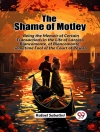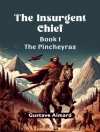In ‚The Four Horsemen of the Apocalypse, ‚ Vicente Blasco Ibáñez employs a rich and evocative narrative style to explore the profound effects of World War I on society and individual lives. Set against the backdrop of a rapidly changing Europe, the novel intertwines themes of love, sacrifice, and the stark realities of war, drawing upon the biblical imagery of the Four Horsemen to symbolize destruction, conquest, famine, and death. Ibáñez’s vivid characterizations and emotional depth invite readers into the stark confrontations between idealism and the brutal truths of humanity’s capacity for violence, making this work a poignant reflection on the turmoil of the early 20th century. Vicente Blasco Ibáñez was a prolific Spanish author and political figure whose own experiences — including his participation in the Spanish-American War and deep engagement with the political turmoil of his time — fueled a passionate commitment to social justice and an exploration of the human condition. His works reflect a profound empathy for the human plight, particularly as rooted in the historical and cultural phenomena of both Spain and Europe. ‚The Four Horsemen of the Apocalypse, ‚ published in 1916, emerged during a period of personal and national crises, allowing Ibáñez to weave his insights into a significant literary tapestry. Readers seeking an impactful narrative that captures the essence of human resilience amidst chaos will find ‚The Four Horsemen of the Apocalypse‘ to be an essential addition to their literary repertoire. This novel is not only a gripping account of the trials of war but also an enduring testament to the complexities of love and the consequences of conflict. Highly recommended for those interested in modernist literature and historical narratives.
Über den Autor
Vicente Blasco Ibáñez (1867–1928) was a Spanish novelist, screenwriter, and political activist, renowned for his vivid portrayals of characters and his panoramic descriptions of events. Born in Valencia, Ibáñez embarked on a multifaceted career which combined literature, journalism, and political activism. A fervent republican and anti-monarchist, his beliefs often permeated his writing, leading him at times into exile. His most famous work, ‚The Four Horsemen of the Apocalypse‘ (1916), gained international acclaim for its gripping narrative and poignant depiction of the impact of World War I on individuals and societies. This novel, which was later adapted into a successful film, showcased his talent for intertwining personal stories with the larger historical drama. In addition to this masterpiece, Ibáñez wrote numerous other works, characterized by their use of naturalist and realist literary styles, focusing on complication-rich love stories, social strife, and the detailed scenarios of his native land. Through his prolific output, Ibáñez has carved out a permanent niche in the canon of Spanish literature, offering a window into the societal shifts and cultural landscapes of his time.












